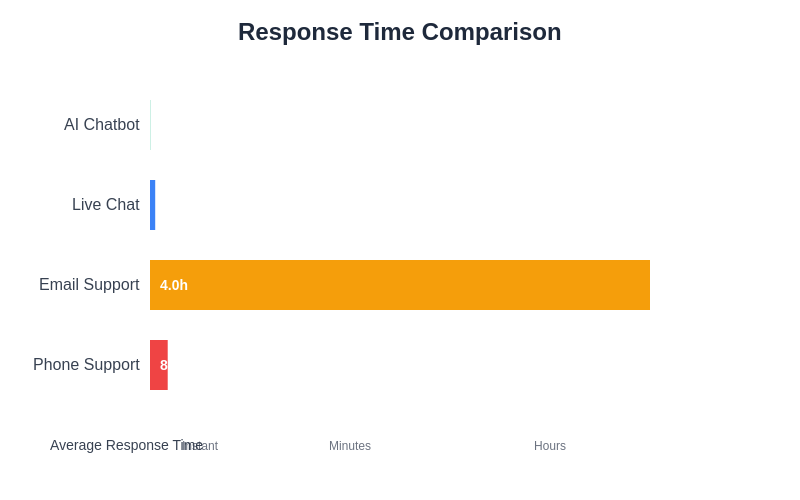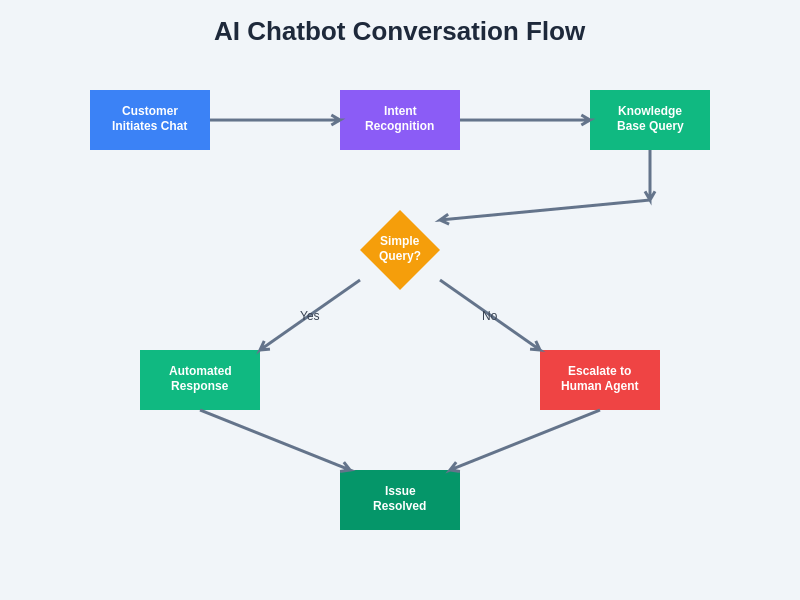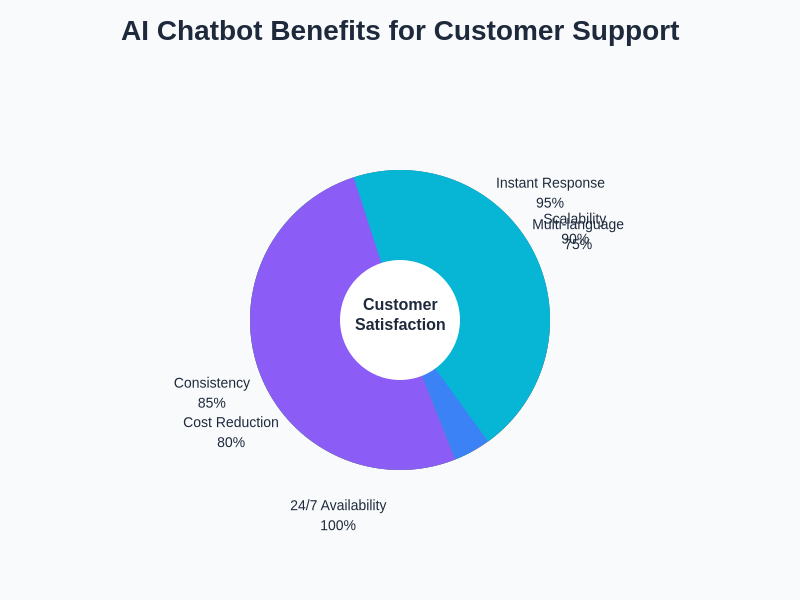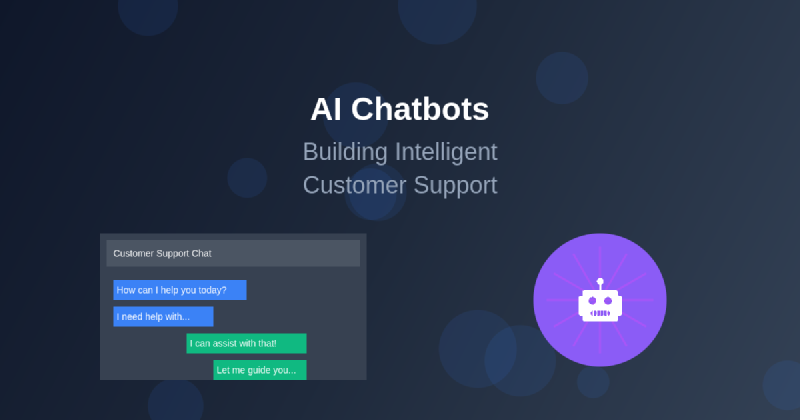The evolution of customer support has reached a transformative milestone with the integration of artificial intelligence-powered chatbots that fundamentally redefine how businesses interact with their customers. These sophisticated digital assistants represent far more than simple automated response systems; they embody a comprehensive approach to customer engagement that combines advanced natural language processing, machine learning capabilities, and contextual understanding to deliver personalized, efficient, and highly effective support experiences that rival and often exceed traditional human-mediated interactions.
Explore the latest AI innovations in customer service to understand how cutting-edge technologies are reshaping customer support landscapes across industries. The implementation of AI chatbots in customer support represents a paradigm shift that extends beyond mere cost reduction, encompassing enhanced customer satisfaction, improved response times, and the ability to provide consistent, accurate support across multiple channels and time zones without the limitations inherent in traditional support models.
The Foundation of Intelligent Customer Support
Modern AI chatbots represent a sophisticated convergence of multiple advanced technologies working in harmonious coordination to create seamless customer support experiences. These systems leverage natural language processing to understand customer inquiries with remarkable accuracy, machine learning algorithms to continuously improve response quality, and contextual awareness to maintain meaningful conversations that feel genuinely human-like rather than mechanical or scripted.
The architectural foundation of contemporary AI chatbots incorporates deep learning models trained on vast datasets of customer interactions, enabling them to recognize patterns, understand intent, and provide appropriate responses across a wide spectrum of customer support scenarios. This technological sophistication allows chatbots to handle complex queries, maintain conversation context throughout extended interactions, and seamlessly escalate issues to human agents when situations require specialized expertise or emotional sensitivity that exceeds current AI capabilities.
The integration of sentiment analysis capabilities further enhances chatbot effectiveness by enabling these systems to detect customer emotions, adjust their communication style accordingly, and prioritize urgent or sensitive issues for immediate attention. This emotional intelligence component transforms chatbots from simple question-answering tools into empathetic digital assistants capable of providing genuinely supportive customer experiences.
Revolutionizing Response Times and Availability
Traditional customer support models face inherent limitations related to business hours, staffing constraints, and geographic boundaries that can significantly impact customer satisfaction and loyalty. AI chatbots eliminate these restrictions by providing instantaneous, round-the-clock support availability that ensures customers receive immediate assistance regardless of time zones, holidays, or unexpected demand spikes.
The immediate response capability of AI chatbots addresses one of the most significant pain points in customer service: waiting times. Customers no longer need to endure lengthy hold times or delayed email responses; instead, they receive instant acknowledgment of their inquiries and immediate assistance for straightforward issues. This immediate availability not only improves customer satisfaction but also prevents minor issues from escalating into major problems that require more extensive resources to resolve.

The dramatic difference in response times between AI chatbots and traditional customer support methods illustrates one of the most compelling advantages of automated customer service solutions. While traditional methods measure response times in minutes or hours, AI chatbots deliver instantaneous responses that meet modern customer expectations for immediate assistance.
Discover advanced AI capabilities with Claude for building sophisticated chatbot systems that can handle complex customer interactions with human-like understanding and response quality. The scalability of AI chatbots ensures that businesses can maintain consistent support quality even during peak demand periods, such as product launches, promotional events, or crisis situations where traditional support channels might become overwhelmed.
Personalization and Contextual Understanding
The true power of AI chatbots lies in their ability to deliver highly personalized customer support experiences that take into account individual customer histories, preferences, and specific circumstances. Advanced chatbot systems can access customer databases, purchase histories, and previous interaction records to provide contextually relevant responses that demonstrate understanding of each customer’s unique situation and requirements.
This personalization capability extends beyond simple data retrieval to include predictive analysis that anticipates customer needs based on behavioral patterns and historical interactions. For example, a chatbot supporting an e-commerce platform might proactively offer shipping updates, suggest complementary products, or provide personalized troubleshooting guidance based on a customer’s specific purchase history and previous support interactions.
The contextual understanding capabilities of modern AI chatbots enable them to maintain coherent conversations across multiple interaction points, remembering previous discussions and building upon established context to provide increasingly refined and relevant support. This continuity creates a more natural and efficient support experience that reduces the need for customers to repeatedly explain their situations or provide background information.
Multi-Channel Integration and Consistency
Contemporary customer support landscapes encompass multiple communication channels, including websites, mobile applications, social media platforms, email, and traditional phone systems. AI chatbots excel in providing consistent support experiences across all these channels, ensuring that customers receive uniform service quality regardless of their preferred communication method.
The omnichannel capabilities of AI chatbots enable seamless conversation continuity as customers move between different platforms. A customer might initiate a support inquiry through a company’s website, continue the conversation via mobile app, and receive follow-up information through email, all while maintaining conversation context and avoiding the frustration of having to restart their support request multiple times.
This multi-channel integration also enables businesses to gather comprehensive customer interaction data across all touchpoints, providing valuable insights into customer behavior patterns, common issues, and opportunities for service improvement. The centralized nature of AI chatbot systems ensures that all customer interactions are logged and analyzed, creating a rich database of customer intelligence that can inform business decisions and support strategy optimization.
Advanced Problem-Solving Capabilities
Modern AI chatbots have evolved far beyond simple frequently asked questions systems to become sophisticated problem-solving tools capable of handling complex customer issues through guided troubleshooting processes, diagnostic procedures, and step-by-step resolution guidance. These systems can analyze problem descriptions, identify likely causes, and provide detailed resolution instructions that help customers resolve issues independently.
The diagnostic capabilities of AI chatbots are particularly valuable in technical support scenarios where customers may lack the expertise to accurately describe their problems or identify potential solutions. Advanced chatbots can ask targeted diagnostic questions, interpret customer responses, and guide users through systematic troubleshooting processes that efficiently identify and resolve issues.

The sophisticated decision-making process of AI chatbots follows a structured workflow that ensures optimal customer support outcomes through intelligent routing, automated resolution for simple queries, and seamless escalation to human agents when complex issues require specialized attention. This systematic approach maximizes efficiency while maintaining high service quality standards.
Enhance your research capabilities with Perplexity to stay informed about the latest developments in AI chatbot technologies and implementation strategies. The integration of visual recognition capabilities in some advanced chatbot systems allows customers to upload images or screenshots of problems, enabling more accurate diagnosis and more effective resolution guidance.
Integration with Business Systems and Workflows
The effectiveness of AI chatbots in customer support environments depends significantly on their integration with existing business systems, including customer relationship management platforms, order management systems, inventory databases, and knowledge management repositories. These integrations enable chatbots to access real-time information and provide accurate, up-to-date responses to customer inquiries.
Seamless integration with business workflows allows AI chatbots to perform complex tasks such as processing returns, updating account information, scheduling appointments, and initiating service requests without requiring human intervention. This automation capability not only improves efficiency but also reduces the potential for human error while ensuring consistent application of business policies and procedures.
The integration of AI chatbots with analytics and reporting systems provides businesses with valuable insights into customer support trends, common issues, and opportunities for process improvement. These data-driven insights enable continuous optimization of chatbot performance and help identify areas where additional training or system enhancements might be beneficial.
Natural Language Processing Excellence
The foundation of effective AI chatbots lies in sophisticated natural language processing capabilities that enable these systems to understand and respond to customer inquiries with remarkable accuracy and nuance. Advanced NLP algorithms can parse complex sentences, identify key concepts, extract relevant information, and generate appropriate responses that feel natural and conversational rather than robotic or scripted.
The evolution of natural language processing has enabled chatbots to handle various communication styles, colloquialisms, and even multiple languages within single conversations. This linguistic flexibility ensures that chatbots can effectively serve diverse customer populations while maintaining high levels of understanding and response accuracy across different demographic groups and communication preferences.
Contemporary NLP systems also incorporate context awareness that enables chatbots to understand implied meanings, resolve ambiguous references, and maintain conversation coherence throughout extended interactions. This sophisticated understanding capability allows chatbots to engage in more natural conversations that feel genuinely helpful rather than frustratingly mechanical.
Machine Learning and Continuous Improvement
One of the most compelling aspects of AI chatbots is their ability to continuously learn and improve through machine learning algorithms that analyze interaction patterns, customer feedback, and resolution success rates. This self-improving capability ensures that chatbot performance becomes increasingly sophisticated over time, with systems becoming more accurate, more helpful, and more capable of handling complex scenarios.
Machine learning enables chatbots to identify patterns in customer inquiries, recognize emerging issues before they become widespread problems, and develop more effective response strategies based on successful interaction outcomes. This continuous improvement process ensures that chatbots remain current with evolving customer needs and business requirements while maintaining peak performance levels.
The feedback loop created by machine learning systems allows chatbots to learn from both successful and unsuccessful interactions, refining their understanding of customer intent and improving their ability to provide satisfactory resolutions. This adaptive capability ensures that AI chatbots become increasingly valuable assets that grow more effective with each customer interaction.
Security and Privacy Considerations
The implementation of AI chatbots in customer support environments requires careful attention to security and privacy considerations, particularly when these systems handle sensitive customer information such as personal details, financial data, or confidential business information. Advanced chatbot systems incorporate robust security measures including data encryption, secure authentication protocols, and comprehensive audit trails that ensure customer information remains protected throughout all interactions.
Privacy compliance represents another critical consideration in chatbot implementation, with systems requiring careful design to ensure adherence to regulations such as GDPR, CCPA, and other data protection requirements. Modern chatbot platforms incorporate privacy-by-design principles that minimize data collection, provide transparent information about data usage, and enable customers to control their personal information throughout support interactions.
The security architecture of AI chatbots also includes measures to prevent potential vulnerabilities such as prompt injection attacks, data leakage, and unauthorized access to sensitive systems. These protective measures ensure that chatbots enhance rather than compromise overall security postures while providing effective customer support capabilities.
Cost Efficiency and Resource Optimization
The economic impact of AI chatbots on customer support operations extends far beyond simple labor cost reduction, encompassing comprehensive resource optimization that improves overall business efficiency while maintaining or enhancing service quality. Chatbots enable businesses to handle significantly larger volumes of customer inquiries without proportional increases in staffing costs, creating scalable support solutions that grow with business needs.
The automation of routine inquiries through AI chatbots allows human support agents to focus on complex issues that require specialized expertise, emotional intelligence, or creative problem-solving capabilities. This optimization of human resources ensures that skilled support professionals can concentrate on high-value activities while chatbots handle the volume of straightforward inquiries that would otherwise consume significant agent time.
The 24/7 availability of AI chatbots eliminates the need for extensive overnight or weekend staffing while ensuring continuous customer service availability. This operational efficiency reduces labor costs while improving customer satisfaction through consistent service availability that meets modern customer expectations for immediate support access.
Analytics and Performance Measurement
The implementation of AI chatbots provides businesses with unprecedented visibility into customer support operations through comprehensive analytics and performance measurement capabilities. These systems generate detailed data about interaction patterns, resolution rates, customer satisfaction levels, and operational efficiency metrics that enable data-driven optimization of support strategies.
Advanced analytics capabilities enable businesses to identify trends in customer inquiries, predict future support needs, and proactively address emerging issues before they impact large numbers of customers. This predictive capability transforms customer support from a reactive function into a proactive business intelligence tool that contributes to overall customer experience optimization.
The measurement capabilities of AI chatbot systems also enable precise tracking of key performance indicators such as first-contact resolution rates, average handling times, customer satisfaction scores, and cost per interaction. These metrics provide clear visibility into support operation effectiveness while identifying opportunities for continuous improvement and optimization.

The comprehensive benefits of AI chatbots extend across multiple dimensions of customer support operations, with particularly strong advantages in availability, response speed, and operational consistency. These quantified improvements demonstrate the transformative impact that well-implemented chatbot solutions can deliver for customer support organizations.
Future Evolution and Emerging Capabilities
The trajectory of AI chatbot development points toward increasingly sophisticated capabilities that will further transform customer support landscapes through enhanced emotional intelligence, multimodal interaction capabilities, and deeper integration with business processes. Emerging technologies such as advanced sentiment analysis, voice recognition, and visual processing will enable chatbots to provide even more natural and effective customer support experiences.
The integration of AI chatbots with emerging technologies such as augmented reality and virtual reality opens new possibilities for immersive customer support experiences, particularly in technical support scenarios where visual guidance can significantly improve resolution effectiveness. These emerging capabilities will enable chatbots to provide increasingly sophisticated assistance that rivals and potentially exceeds traditional support methods.
The evolution toward more sophisticated AI models promises chatbots that can handle increasingly complex scenarios, demonstrate greater emotional intelligence, and provide more personalized experiences that feel genuinely human-like while maintaining the efficiency and consistency advantages of automated systems. This evolution will continue to expand the range of customer support scenarios where AI chatbots can provide effective assistance while freeing human agents to focus on the most complex and sensitive customer interactions.
Implementation Strategies and Best Practices
Successful implementation of AI chatbots in customer support environments requires careful planning, strategic integration, and ongoing optimization to ensure these systems deliver maximum value while maintaining high levels of customer satisfaction. The implementation process should begin with comprehensive analysis of existing support operations to identify optimal use cases, define success metrics, and establish clear integration requirements.
The training and deployment of AI chatbots requires extensive preparation including data collection, model training, testing, and gradual rollout strategies that minimize disruption while maximizing effectiveness. This systematic approach ensures that chatbots are fully prepared to handle customer interactions effectively while providing fallback mechanisms for scenarios that exceed current AI capabilities.
Ongoing optimization of AI chatbot performance requires continuous monitoring, regular updates, and responsive adjustments based on customer feedback and performance analytics. This commitment to continuous improvement ensures that chatbot systems remain effective and valuable as customer needs evolve and business requirements change.
The successful integration of AI chatbots into customer support operations represents a transformative opportunity for businesses to enhance customer satisfaction, improve operational efficiency, and create scalable support solutions that grow with evolving business needs. Through careful implementation, ongoing optimization, and strategic integration with existing support processes, AI chatbots can become invaluable assets that revolutionize customer support while maintaining the human touch that remains essential for complex and sensitive customer interactions.
Disclaimer
This article is for informational purposes only and does not constitute professional advice regarding AI chatbot implementation or customer support strategy. The effectiveness of AI chatbot solutions may vary depending on specific business requirements, customer demographics, and implementation approaches. Readers should conduct thorough research and consider consulting with technology specialists before implementing AI chatbot solutions in their customer support operations.
